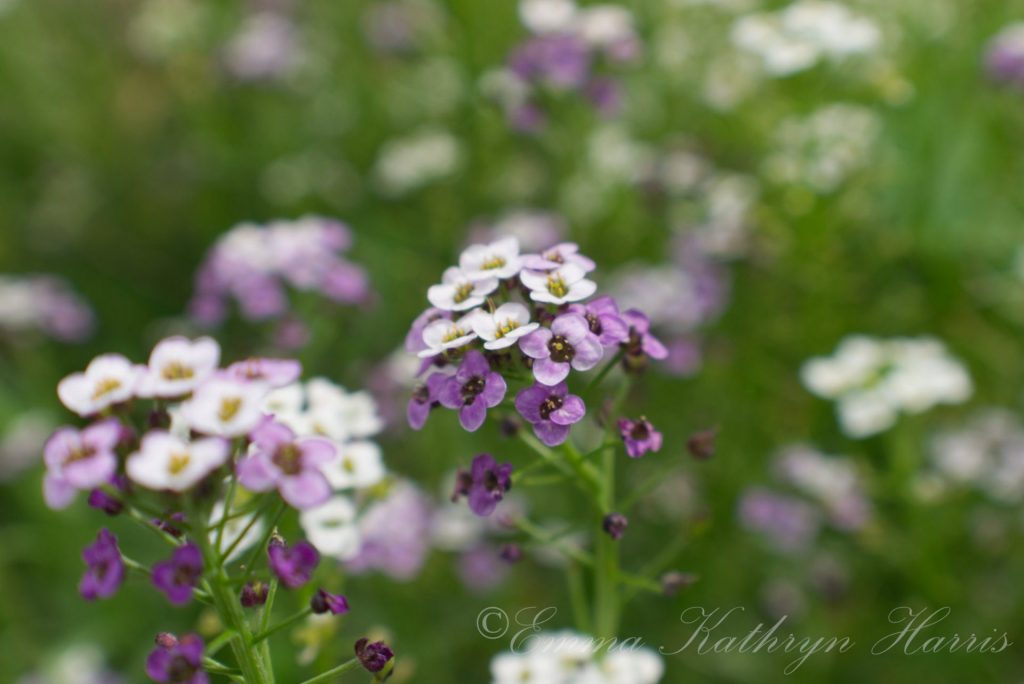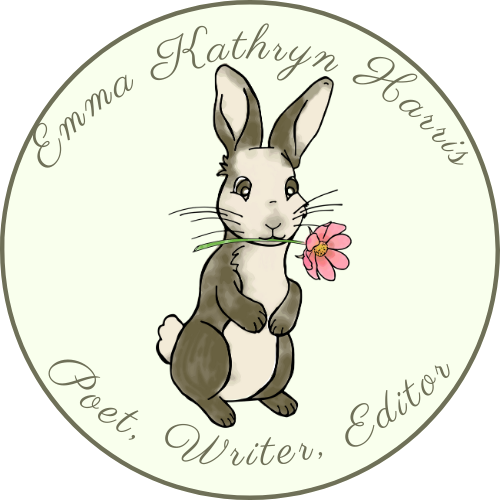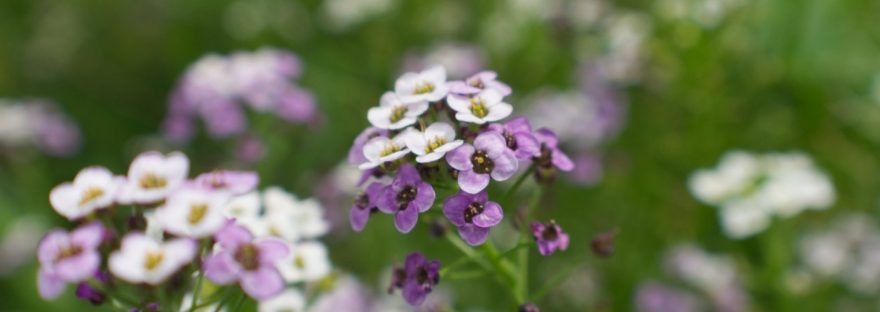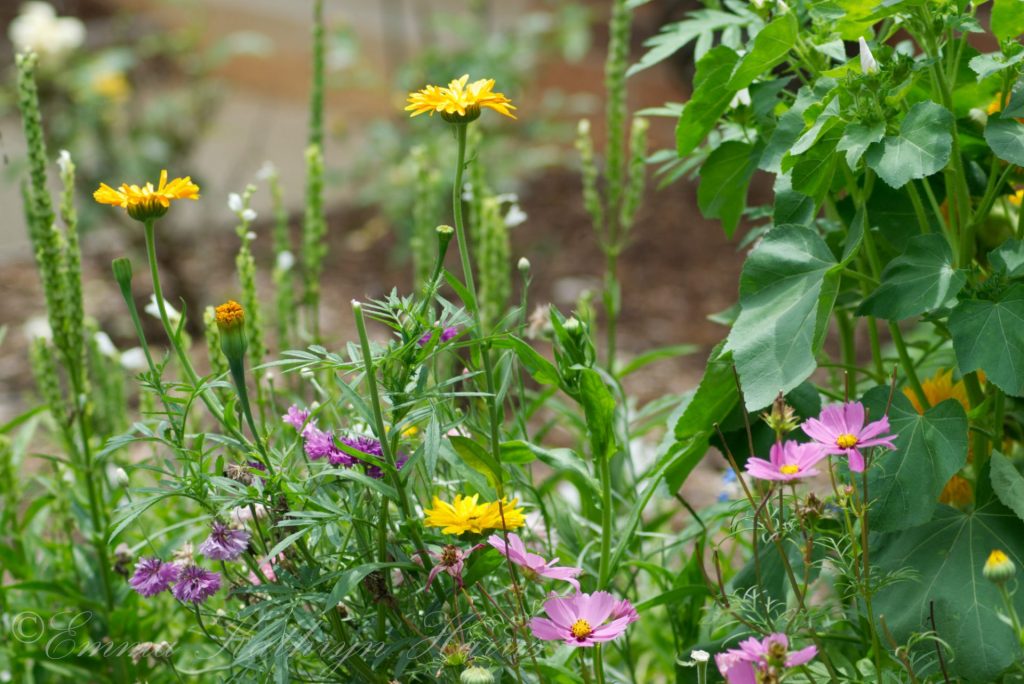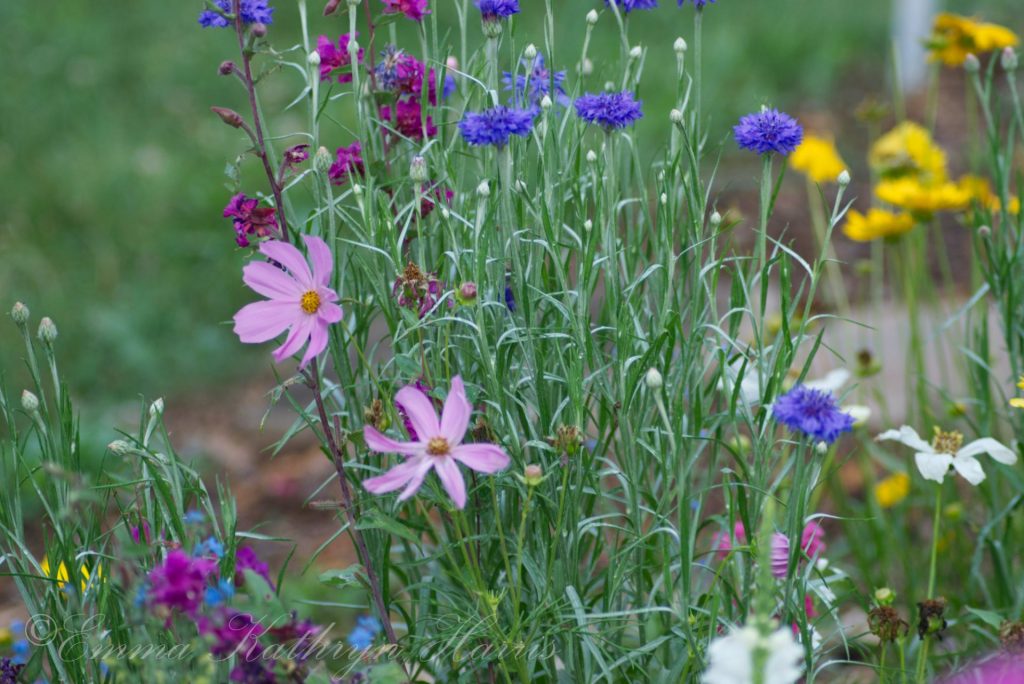We learn from our gardens to deal with the most urgent question of the time: How much is enough?”
Wendell Berry, American Poet
My vision for the perfect garden does not include me bending over in the blazing sun pulling weeds. Since I cannot afford an entourage of weed-pulling minions, I am on my own. Usually I focus on watering my garden, admiring the growth, snapping photos of my beauties, all the fun stuff. Until the weeds begin to take over and simply cannot be ignored any longer.
This morning, thinking I would do my due diligence and pull a few weeds as I watered, I found myself standing in the middle of a wild strawberry groundcover that I realized had taken over under my very feet. I allowed the groundcover to remain for the last couple years because it looked cute and I thought, why not? But it seemed, almost overnight, that these cuties morphed into a gigantic beast, spreading their stringy, viny arms through my other plants.
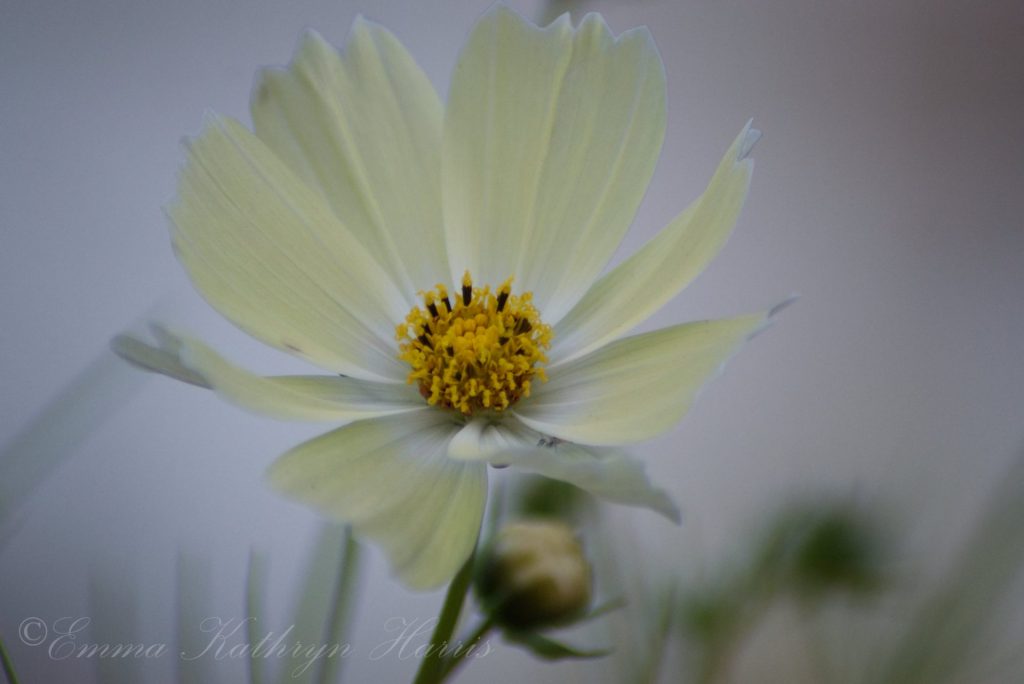
Weeds insert themselves unnoticed, like a poorly written sentence
As if that was not bad enough, I noticed the crabgrass has spread equally throughout the garden. It loves the heat and we have had a number of hot days here in North Carolina, so while I avoided weeding because of the heat, the crabgrass took full advantage of it.
The difficulty with invasive weeds, aside from the challenge of keeping them out of your garden, especially when not using a chemical weed killer, is that they harm the other plants. They absorb the nutrients and water the other plants need, which will kill them off. I wondered why the 2,000 seeds of alyssum I had planted did not sprout as profusely as in years past. The crabgrass has surrounded that area, blocking out the sun from reaching my beloved alyssum.
This is all part of their evil plan. I swear when I tear out the crabgrass it is laughing at me.
Sacrificing a darling to save the many
As I pulled and yanked and dug out the strawberry vines and crabgrass, I tried to be careful around my other plants. The weeds have a pernicious ability to wrap their tentacles through the innocent plants, slowly choking them, so that I work to unwrap them from my dear plants before uprooting the weed. Sadly, not all survived. While the strawberry groundcover was easier to maneuver and caused little damage to my babies, the merciless crabgrass took victims. It saddened me when I accidentally pulled out my alyssum and poppies with the weed, but it could not be helped.
Weeding under the grueling sun makes me delirious, but when my vision clears, I begin to think about my writing. Weeding, to me, is like editing. We weed to remove the bad stuff from our gardens, the harm it causes, to create a cleaner, more appealing yard. We edit our work to get rid of stuff that doesn’t fit anymore, that brings the story down and causes harm, so that the story is cleaner, more appealing to our readers.
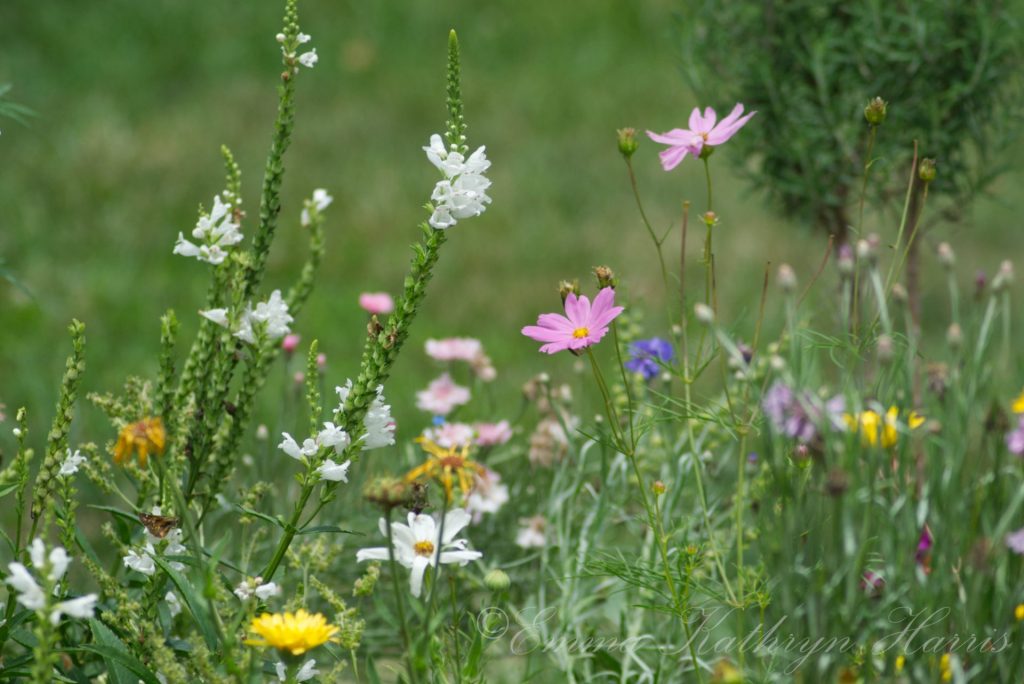
Yet, killing our “babies” or “darlings” as we writers refer to passages we love but admit do not work for the narration, is not an easy task. We close our eyes and pull, cry a little, and move on. As I pulled the weeds which took with them some of my “babies,” I was upset, sad because I loathe killing innocent plants, but realized I didn’t have a choice. Sacrifice the one to save the many. I had to yank the beast.
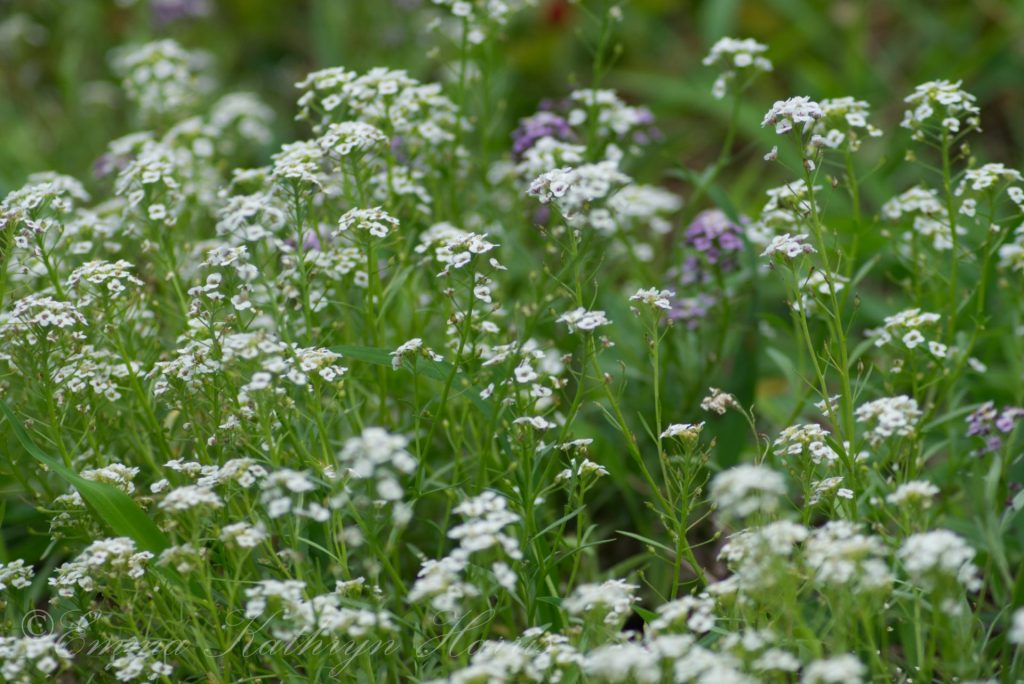
These writing sacrifices break our hearts, but we dust ourselves off, and move forward.
I have a lot more weeding to do, but I made a huge dent in the garden and already it is happily breathing in the sunshine. I’ll keep pulling weeds each day until I’ve cleared it all, but it is an ongoing chore.
Our editing is an ongoing chore. But we keep at it because we know, in the end, we will have created something clean and beautiful.
